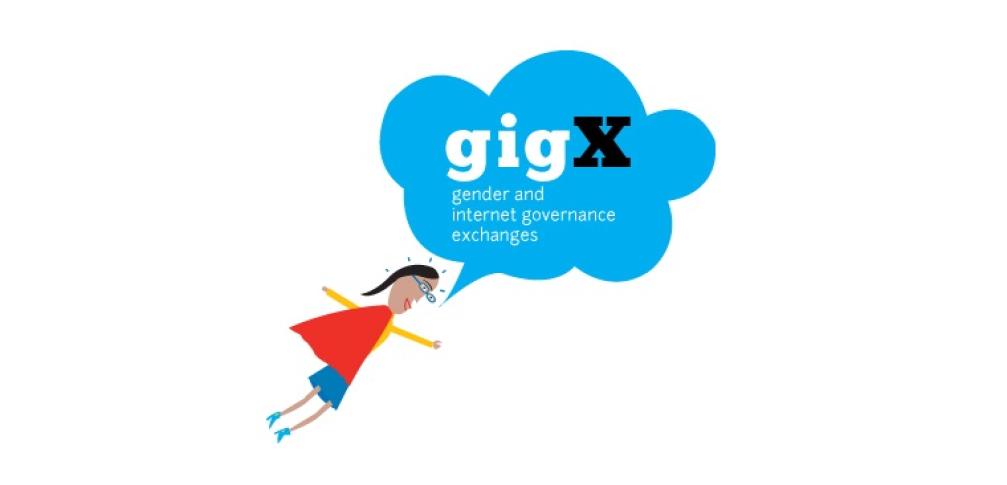
APC believes that the integration of a gender, women’s rights and sexual rights perspective into internet governance conversations and processes is essential if the internet is to fulfil its transformational potential for all.
Contributing to this vision, between June and September 2015, we held three regional Gender and Internet Governance eXchanges (gigX) prior to the regional Internet Governance Forums (IGFs) in Asia, Africa, and Latin America and the Caribbean (LAC). These exchanges bring together women’s rights, internet rights and sexual rights activists from each region to discuss and build awareness and understanding of the relationship between gender, women’s rights and internet governance. Skills and knowledge acquired during the events will be put into practice immediately afterwards, as participants will go on to participate in the regional IGFs.
Background
The Gender and Internet Governance eXchange (gigX) initiative forms part of APC’s End violence: Women’s rights and safety online project, which is carried out with support from the Dutch Ministry of Foreign Affair’s Funding Leadership and Opportunities for Women (FLOW) Fund. This project builds on APC’s work in the struggle against violence against women (VAW) and on existing partnerships to enhance women’s safety and security by preventing the growing violence against women perpetrated through ICTs.

There is a gap in participation by women’s rights and sexual rights advocates in internet governance policy processes and development nationally, regionally and globally, in every sector and stakeholder group. Responding to this requires the development and strengthening of processes and mechanisms that enable the active, equal and meaningful participation of women and girls in decision making on how the internet is shaped and prioritised.
This can only happen with real, effective and meaningful engagement of all stakeholders in the way the internet is developed and managed, particularly by women, girls and sections of civil society that have been historically marginalised in or excluded from these processes.
Mandated by the UN, the Internet Governance Forum (IGF) is the most important space where multistakeholder discussions take place, bringing together members of civil society, the technical community and decision makers to debate key issues related to internet governance. We see the IGF as a key advocacy space for women’s rights and sexual rights advocates, as it brings together all actors partaking in the discussion on an equal footing.
However, while women’s participation has increased tremendously in recent years to almost reach parity, the Gender Report Cards of the IGF compiled by APC show that women still have a lesser influence in the discussions and debates of the Forum. In 2014, our report card analysis showed that none of the the sub-themes of the IGF reached gender parity in their choice of moderator or panellists, and that gender was not seen as relevant in the discussions of most panels and workshops.
What are we doing about it?
Overall, this project will increase participants’ capacity to discuss, analyse, respond to and influence policy on gender and internet governance more effectively. This will allow women’s rights and sexual rights activists and organisations in Asia, Africa and LAC to advocate strategically for internet-related laws, policies and regulations that improve women’s lives and that contribute to women’s social, economic and cultural empowerment.
Building the capacity of these advocates will contribute to shifting and expanding the discussions on internet governance in a way that ultimately contributes to an internet that is responsive for all people, by mainstreaming gender concerns in the governance of the internet among the technological community, decision makers, and internet and communication rights advocates.
Activities
-
Capacity building: Two-day exchanges will be held Asia, Africa and LAC prior to the regional IGFs, with 10 to 15 participants in each region. As part of the process to update the second edition of the APC Policy Toolkit from 2011, as well as APC’s Internet Rights Are Human Rights curriculum and APC’s overall approach to capacity building, we have developed a platform to house the training material developed for these events.
-
Advocacy, networking and communications: The capacity-building activities will help participants to establish common advocacy strategies, identifying gaps and trends in their region and making links between regional and global internet governance issues. Participants in the gigX will, through their participation in their respective regional IGF, contribute to and influence discourse on internet governance to integrate women’s rights and sexual rights concerns. A series of blog posts will be produced by participants in each region, increasing the visibility of the issues involved and contributing to a growing body of knowledge on gender and internet governance.



